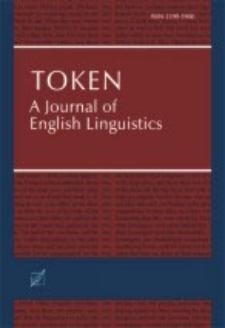Biblioteka Cyfrowa Uniwersytetu Jana Kochanowskiego udostępnia 13 367 obiektów cyfrowych
Obiekt
Tytuł: A Corpus-driven Conversation Analysis Approach to Mentor-Mentee Interactions in a Practicum Context
Twórca:
Tytuł publikacji grupowej:
Abstrakt:
Effective collaboration of a mentor–mentee type is built on nonhierarchical, nondirective, frequent, meaningful, (in)formal and compassionate relationships (e.g., Arshavskaya 2014; Izadinia 2015; Kim – Schallert 2011; Long et al. 2013; Mena et al. 2017; Moser et al. 2019). Such contact opens a space for constructive conversations that build the intellectual, knowledge and social capital of teacher candidates, their future pupils and mentors (Langdon et al. 2014). Contrarily, contact based on a highly hierarchical expert–novice type leads to a supervisory rather than a supportive relationship (Jones et al. 2016). The supervisory type negatively influences the challenging apprenticeship of observation (Lortie 1975) and the shaping of teacher candidates’ teacher identity (Long et al. 2013; Palazzolo et al. 2019; Patrick 2013). This paper adopts a corpusdriven conversation analysis approach to nuances of effective and good mentor – mentee interactions during feedback sessions of student-teaching practica. The corpus consists of 109 utterances which were made by effective and experienced mentors and which are recorded in 11 transcript excerpts selected from three scientific articles. The utterances were used in this paper to develop a framework of effective and good mentor communication. This framework was built by assigning these 109 utterances to one of the three types of conversational frames outlined by Long et al. (2013), i.e., educative or supportive or evaluative, paired with one of three types of eutoric cues characterized as positive/good communication by Korwin-Piotrowska (2020), i.e., the human being/mentee or the topic or the conversation/dialogue. The findings show that there is a statistically significant difference between the frequency of utterances addressing the mentee and the topic in the educative frame and such frequency addressing the mentee and topic in the evaluative frame. In other words, in the educative frame utterances are topic-centered and in the evaluative frame they are mentee-centered. This framework can help in acquiring a better understanding of one’s linguistic choices when interacting with others.
Miejsce wydania:
Opis fizyczny:
ISSN:
Wydawca:
Wydawnictwo Uniwersytetu Jana Kochanowskiego w Kielcach
Data wydania:
Identyfikator:
oai:bibliotekacyfrowa.ujk.edu.pl:8007 doi:10.25951/4825
Język:
Jest częścią:
Token : A Journal of English Linguistics
Ma część:
Typ:
Prawa dostępu:
Format:
Kolekcje, do których przypisany jest obiekt:
- Biblioteka Cyfrowa Uniwersytetu Jana Kochanowskiego > Wydawnictwo Uniwersyteckie
- Biblioteka Cyfrowa Uniwersytetu Jana Kochanowskiego > Wydawnictwo Uniwersyteckie > Wydawnictwa ciągłe
- Biblioteka Cyfrowa Uniwersytetu Jana Kochanowskiego > Wydawnictwo Uniwersyteckie > Wydawnictwa ciągłe > "Token : A Journal of English Linguistics"
Data ostatniej modyfikacji:
4 kwi 2025
Data dodania obiektu:
13 lut 2023
Liczba wyświetleń treści obiektu:
65
Wszystkie dostępne wersje tego obiektu:
https://bibliotekacyfrowa.ujk.edu.pl/publication/4825
Wyświetl opis w formacie RDF:
Wyświetl opis w formacie OAI-PMH:
| Nazwa wydania | Data |
|---|---|
| Bąk-Średnicka, Anna, A Corpus-driven Conversation Analysis Approachto Mentor-Mentee Interactions in a Practicum Context | 4 kwi 2025 |

